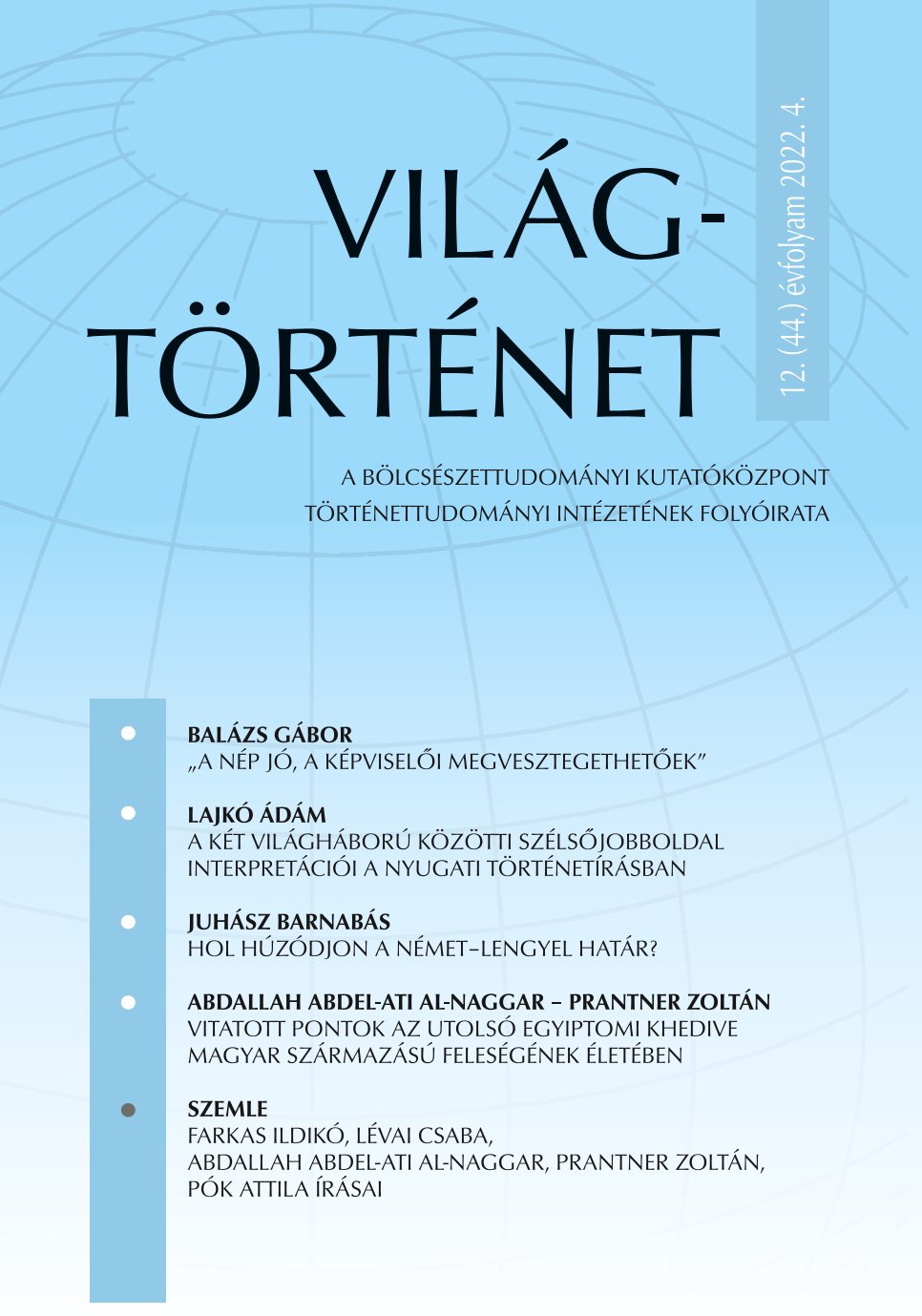A két világháború közötti szélsőjobboldal interpretációi a nyugati történetírásban
The Interpretations of Interwar Fascism in Western Historiography
Author(s): Ádám LajkóSubject(s): Interwar Period (1920 - 1939)
Published by: Magyar Tudományos Akadémia Bölcsészettudományi Kutatóközpont Történettudományi Intézet
Summary/Abstract: The paper surveys the main interpretational schemes of interwar fascist movements in western historiography. It examines the origin of the concept of fascism, and its connections to other possible labels, e. g. the extreme right. The paper then follows the concept of totalitarianism, from its birth, to its development and political utilization during the early Cold War years, to its final dissolution. It surveys those alternative approaches, which describe this phenomenon as a descendant of anti-enlightenment thought. In addition, it examines a radical opposite of the previous interpretation, which describes these movements as first representatives of developmentalism. The paper then presents those approaches, which aim to create a generic concept of fascism, and examines the term political religion. Finally it surveys the literature on the borders of fascism, and on its diverse relationship with pre-war conservatives.
Journal: Világtörténet
- Issue Year: 2022
- Issue No: 4
- Page Range: 585-634
- Page Count: 50
- Language: Hungarian

